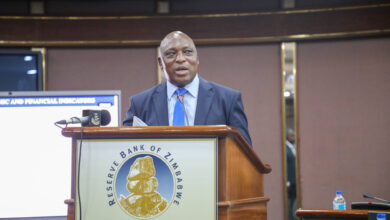Zimbabwe and Zambia Confront Deepening Energy Crisis: Summit to Address Urgent Solutions

Zimbabwe and Zambia are facing a severe energy crisis, with electricity shortages impacting both nations’ economies. The crisis has been exacerbated by a combination of technical issues at key power stations and ongoing droughts, which have lowered water levels in crucial hydroelectric reservoirs. In response to this growing challenge, both countries will convene for the Energy Projects Summit from November 18 to 21 in Victoria Falls. The summit aims to tackle the urgent need for investment in renewable energy, modernizing the power grid, and ensuring greater energy access.
The summit will be held under the theme Powering Zimbabwe and Zambia’s Sustainable Energy Future: Unlocking Opportunities in Renewables, Grid Modernisation, and Energy Access. It will bring together a diverse group of stakeholders, including government officials, energy regulators, utilities, and international investors, to discuss ways of transforming the region’s energy landscape.
Current Energy Crisis
Zimbabwe’s energy sector has been struggling with reduced electricity generation capacity due to a technical fault at the Hwange Power Station, one of the country’s largest power providers. This has compounded the already precarious situation caused by low water levels at the Kariba Power Station, which relies on hydroelectric power. These issues have significantly reduced the national power grid’s generation capacity, resulting in rolling power outages that have disrupted daily life and economic activities.
The Zimbabwe Electricity Supply Authority (ZESA) has acknowledged the problem, stating, “ZESA Holdings would like to advise its valued stakeholders that the national power grid is currently experiencing reduced electricity generation capacity due to a technical fault at Hwange Power Station. This has been further compounded by low generation capacity at Kariba Power Station, resulting from low water levels.” The authorities are working to address these challenges, but the power shortages are expected to persist for the time being.
Droughts and Their Impact
The region’s energy problems have been further aggravated by prolonged droughts, which have decreased the availability of water for hydropower generation. This has raised the urgent need for scenario planning and investment in infrastructure that can help mitigate the effects of climate change and provide a more resilient energy supply. The combined impact of these factors has brought the importance of renewable energy sources and grid modernization into sharper focus.
The Role of the Summit
The upcoming summit presents a critical opportunity for both Zimbabwe and Zambia to unlock solutions to their energy woes. According to Edington Mazambani, the CEO of the Zimbabwe Energy Regulatory Authority, the focus of the summit will be on exploring opportunities in renewable energy, modernizing the energy grids, and ensuring equitable energy access across both nations. He emphasized, “Together, we will explore the vast opportunities in renewables, modernize our grids, and ensure energy access for all.”
The event is expected to highlight the importance of international cooperation in addressing the energy crisis and the potential for both countries to tap into renewable energy resources such as solar, wind, and geothermal power.
Business Impact
Zimbabwe’s power outages have severely impacted key sectors such as mining, agriculture, and manufacturing. Major miners, including Impala Platinum, Anglo American Platinum, and Sibanye-Stillwater, have been reporting significant losses in production and revenue due to power cuts. The energy shortages are also a serious threat to Zimbabwe’s agricultural sector, despite favorable forecasts for the 2024/2025 rainfall season.
Industries are experiencing power outages lasting up to 18 hours a day, which disrupts production processes and leads to increased operational costs. These disruptions have put immense pressure on businesses, particularly those that rely on continuous power supply, such as large-scale manufacturers and agricultural enterprises.
A Vision for the Future
The summit will focus on unlocking the potential of renewable energy and creating a conducive environment for investment in the energy sector. It will also delve into ways of modernizing grid infrastructure to handle the demands of a growing economy and mitigate risks associated with climate change. Manoj Patil, Director of Mining Engineering Services at Vinmart Group, highlighted the importance of these discussions, saying, “Having supported the mining sector in DRC for 14 years, we welcome this opportunity for the important conversations that will unlock opportunities in energy and infrastructure across Zimbabwe and Zambia.”
Both countries are looking to modernize their energy systems and attract investment in clean energy technologies, which will provide long-term solutions to the region’s energy challenges. This summit is a vital step toward ensuring that Zimbabwe and Zambia can build a more resilient, sustainable, and economically viable energy future.
The upcoming Zimbabwe-Zambia Energy Projects Summit represents a pivotal moment for both nations as they seek to navigate and overcome their ongoing energy crisis. The discussions, focused on renewable energy, grid modernization, and energy access, aim to provide a roadmap for a sustainable energy future that can drive economic growth and improve quality of life for millions. The collaboration between governments, businesses, and international investors will be crucial in shaping the future of energy in the region, ensuring that Zimbabwe and Zambia can overcome their energy challenges and unlock new opportunities for growth.




